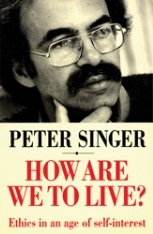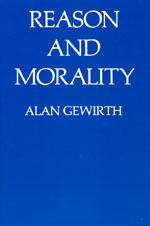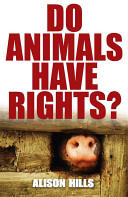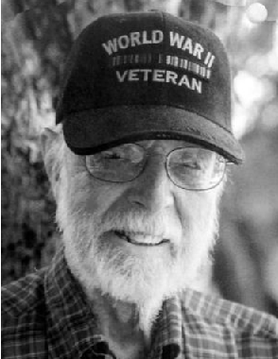
Peter Albert David Singer is an Australian moral philosopher and the Ira W. DeCamp Professor of Bioethics at Princeton University. He specialises in applied ethics, approaching the subject from a secular, utilitarian perspective. He wrote the book Animal Liberation (1975), in which he argues for vegetarianism, and the essay "Famine, Affluence, and Morality", which favours donating to help the global poor. For most of his career, he was a preference utilitarian, but he revealed in The Point of View of the Universe (2014), coauthored with Katarzyna de Lazari-Radek, that he had become a hedonistic utilitarian.
In ethical philosophy, utilitarianism is a family of normative ethical theories that prescribe actions that maximize happiness and well-being for the affected individuals. In other words, utilitarian ideas encourage actions that ensure the greatest good for the greatest number.
Moral realism is the position that ethical sentences express propositions that refer to objective features of the world, some of which may be true to the extent that they report those features accurately. This makes moral realism a non-nihilist form of ethical cognitivism with an ontological orientation, standing in opposition to all forms of moral anti-realism and moral skepticism, including ethical subjectivism, error theory ; and non-cognitivism. Within moral realism, the two main subdivisions are ethical naturalism and ethical non-naturalism.

Jan Narveson is professor of philosophy emeritus at the University of Waterloo, in Waterloo, Ontario, Canada. An anarcho-capitalist and contractarian, Narveson's ideology is deeply influenced by the thought of Robert Nozick and David Gauthier.

Applied philosophy is a branch of philosophy that studies philosophical problems of practical concern. The topic covers a broad spectrum of issues in environment, medicine, science, engineering, policy, law, politics, economics and education. The term was popularised in 1982 by the founding of the Society for Applied Philosophy by Brenda Almond, and its subsequent journal publication Journal of Applied Philosophy edited by Elizabeth Brake. Methods of applied philosophy are similar to other philosophical methods including questioning, dialectic, critical discussion, rational argument, systematic presentation, thought experiments and logical argumentation.

"Famine, Affluence, and Morality" is an essay written by Peter Singer in 1971 and published in Philosophy & Public Affairs in 1972. It argues that affluent persons are morally obligated to donate far more resources to humanitarian causes than is considered normal in Western cultures. The essay was inspired by the starvation of Bangladesh Liberation War refugees, and uses their situation as an example, although Singer's argument is general in scope and not limited to the example of Bangladesh. The essay is anthologized widely as an example of Western ethical thinking.

How Are We to Live?: Ethics in an Age of Self-Interest is a 1993 book about applied ethics by moral philosopher Peter Singer. Singer argues that doing the right thing involves attending to the sufferings and preferences of other sentient beings.

Julian Savulescu is an Australian philosopher and bioethicist of Romanian origins. He is Chen Su Lan Centennial Professor in Medical Ethics and director of the Centre for Biomedical Ethics at National University of Singapore. He was previously Uehiro Chair in Practical Ethics at the University of Oxford, Fellow of St Cross College, Oxford, director of the Oxford Uehiro Centre for Practical Ethics, and co-director of the Wellcome Centre for Ethics and Humanities. He is visiting professorial fellow in Biomedical Ethics at the Murdoch Children's Research Institute in Australia, and distinguished visiting professor in law at Melbourne University since 2017. He directs the Biomedical Ethics Research Group and is a member of the Centre for Ethics of Pediatric Genomics in Australia. He is a former editor and current board member of the Journal of Medical Ethics, which is ranked as the No.2 journal in bioethics worldwide by Google Scholar Metrics, as of 2022. In addition to his background in applied ethics and philosophy, he also has a background in medicine and neuroscience and completed his MBBS (Hons) and BMedSc at Monash University, graduating top of his class with 18 of 19 final year prizes in Medicine. He edits the Oxford University Press book series, the Uehiro Series in Practical Ethics.
The argument from marginal cases is a philosophical argument within animal rights theory regarding the moral status of non-human animals. Its proponents hold that if human infants, senile people, the comatose, and cognitively disabled people have direct moral status, non-human animals must have a similar status, since there is no known morally relevant characteristic that those marginal-case humans have that animals lack. "Moral status" may refer to a right not to be killed or made to suffer, or to a general moral requirement to be treated in a certain way.

Mylan Engel Jr. is a full professor of philosophy at Northern Illinois University in DeKalb.
Professor David Simon Oderberg is an Australian philosopher of metaphysics and ethics based in Britain since 1987. He is Professor of Philosophy at the University of Reading. He describes himself as a non-consequentialist or a traditionalist in his works. Broadly speaking, Oderberg places himself in opposition to Peter Singer and other utilitarian or consequentialist thinkers. He has published over thirty academic papers and has authored six books: The Metaphysics of Good and Evil, Opting Out: Conscience and Cooperation in a Pluralistic Society, Real Essentialism, Applied Ethics, Moral Theory, and The Metaphysics of Identity over Time. Professor Oderberg is an alumnus of the Universities of Melbourne, where he completed his first degrees, and Oxford where he gained his D.Phil.

Animals' Rights: Considered in Relation to Social Progress is an 1892 book by the English social reformer Henry Stephens Salt. It is widely considered to be the first explicit treatment of the concept of animal rights.
Sentiocentrism, sentio-centrism, or sentientism is an ethical view that places sentient individuals at the center of moral concern. Both humans and other sentient individuals have rights and/or interests that must be considered.

Reason and Morality is a 1978 book about ethics by the philosopher Alan Gewirth. The work for which he is best known, it received positive reviews. The work is defended by the legal scholar Deryck Beyleveld in The Dialectical Necessity of Morality (1991).
Michael Allen Fox is an American/Canadian/Australian philosopher who was based at Queen's University in Kingston, Ontario from 1966 until his retirement in 2005. He is the author of a number of books, including The Case for Animal Experimentation: An Evolutionary and Ethical Perspective —the arguments and conclusion of which he later rejected—Deep Vegetarianism, The Accessible Hegel, The Remarkable Existentialists, Understanding Peace and Home: A Very Short Introduction.

Do Animals Have Rights? is a 2005 non-fiction book on animal rights by British philosopher Alison Hills from the University of Bristol. The book explores the ethics of factory farming, animal experimentation and other issues involving animals from a philosophical analysis.

Katarzyna de Lazari-Radek is a Polish utilitarian philosopher and a university professor at the Institute of Philosophy at University of Łódź.
Mark H. Bernstein is an American philosopher and Joyce & Edward E. Brewer Chair in Applied Ethics at Purdue University. He is known for his research on animal ethics.

Charles Russell Magel was an American philosopher, animal rights activist and bibliographer. He was professor emeritus of Philosophy and Ethics at Moorhead State University.
Hugh LaFollette is an American philosopher who holds the Marie E. and Leslie Cole Emeritus Chair in Ethics at the University of South Florida. He primarily works on moral philosophy.












